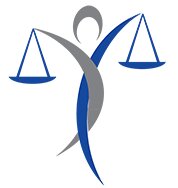Best Assault & Battery Lawyers in Trinidad and Tobago
Share your needs with us, get contacted by law firms.
Free. Takes 2 min.
Or refine your search by selecting a city:
List of the best lawyers in Trinidad and Tobago
About Assault & Battery Law in Trinidad and Tobago
Assault and battery are criminal offenses in Trinidad and Tobago, categorized under violent crimes. Assault typically involves an intentional act that causes another person to fear imminent harm, while battery refers to the actual physical contact or harm inflicted on another individual. These offenses are taken seriously under Trinidad and Tobago law, and penalties can include fines, imprisonment, or both, depending on the severity of the offense.
Why You May Need a Lawyer
There are several situations in which you may require legal assistance related to assault and battery in Trinidad and Tobago:
- If you have been accused of assault or battery, a lawyer can help defend your rights and provide legal representation in court.
- If you are a victim of assault or battery, a lawyer can assist in filing charges against the perpetrator and seeking compensation for injuries or damages.
- In cases where there are disputes about the events that led to the accusation, legal advice can help clarify the facts and ensure a fair outcome.
- Lawyers can offer guidance on negotiating settlements or plea bargains where applicable.
Local Laws Overview
In Trinidad and Tobago, laws related to assault and battery are primarily outlined in the Offenses Against the Person Act. Key points include:
- Assault is defined as an attempt or threat of physical harm towards another individual.
- Battery involves the unlawful use of force against another person, resulting in physical contact or injury.
- The legal system distinguishes between simple and aggravated forms of assault and battery, with aggravated cases involving weapons or severe injury resulting in more severe penalties.
- Self-defense is a recognized legal justification in assault and battery cases, but it must be proportionate to the threat faced.
- Potential consequences for conviction include prison sentences, fines, or both, depending on the gravity of the offense.
Frequently Asked Questions
What constitutes assault and battery?
Assault involves threatening another person with imminent harm, while battery refers to the actual infliction of physical harm. Both require intentional actions.
Can I press charges if someone attempts to harm me but does not make contact?
Yes, an attempt or threat to cause harm can constitute assault, even if no physical contact occurs.
What are the penalties for assault and battery in Trinidad and Tobago?
Penalties vary based on severity but can include fines, imprisonment, or both. Aggravated assault or battery often results in harsher sentences.
Can I be charged with assault for defending myself?
Self-defense is a valid legal defense, but it must be proportionate and reasonable under the circumstances to be considered lawful.
How can I prove self-defense in an assault case?
Evidence such as witness testimony, medical reports, or video footage can help substantiate a claim of self-defense.
Is there a time limit for reporting an assault or battery?
While there is no strict statute of limitations, it is advisable to report such incidents promptly to aid in evidence collection and legal proceedings.
What should I do if I am falsely accused of assault or battery?
Contact a qualified lawyer immediately to help defend against the charges and clear your name.
Can compensation be obtained for injuries sustained from an assault?
Yes, victims may file a civil suit seeking damages for medical expenses, lost wages, and pain and suffering resulting from the assault.
Do I need a lawyer to file a police report for assault?
While not required, consulting with a lawyer can help ensure that your rights are protected and that all relevant details are properly documented.
What steps should I take after experiencing assault or battery?
Seek medical attention, report the incident to the police, document any evidence, and consult a lawyer for legal advice.
Additional Resources
For additional support and information, consider reaching out to the following resources:
- The Trinidad and Tobago Police Service for reporting assaults and obtaining assistance.
- Legal Aid and Advisory Authority for guidance on obtaining legal representation.
- Victim support organizations to provide emotional and practical assistance to victims of crime.
Next Steps
If you require legal assistance related to an assault or battery case, consider taking the following steps:
- Document all relevant details about the incident, including dates, times, and witness contact information.
- Contact a lawyer who specializes in criminal law for a consultation to discuss your case.
- Follow legal advice and attend all scheduled court appearances and related appointments.
Lawzana helps you find the best lawyers and law firms in Trinidad and Tobago through a curated and pre-screened list of qualified legal professionals. Our platform offers rankings and detailed profiles of attorneys and law firms, allowing you to compare based on practice areas, including Assault & Battery, experience, and client feedback.
Each profile includes a description of the firm's areas of practice, client reviews, team members and partners, year of establishment, spoken languages, office locations, contact information, social media presence, and any published articles or resources. Most firms on our platform speak English and are experienced in both local and international legal matters.
Get a quote from top-rated law firms in Trinidad and Tobago — quickly, securely, and without unnecessary hassle.
Disclaimer:
The information provided on this page is for general informational purposes only and does not constitute legal advice. While we strive to ensure the accuracy and relevance of the content, legal information may change over time, and interpretations of the law can vary. You should always consult with a qualified legal professional for advice specific to your situation.
We disclaim all liability for actions taken or not taken based on the content of this page. If you believe any information is incorrect or outdated, please contact us, and we will review and update it where appropriate.
Browse assault & battery law firms by city in Trinidad and Tobago
Refine your search by selecting a city.













